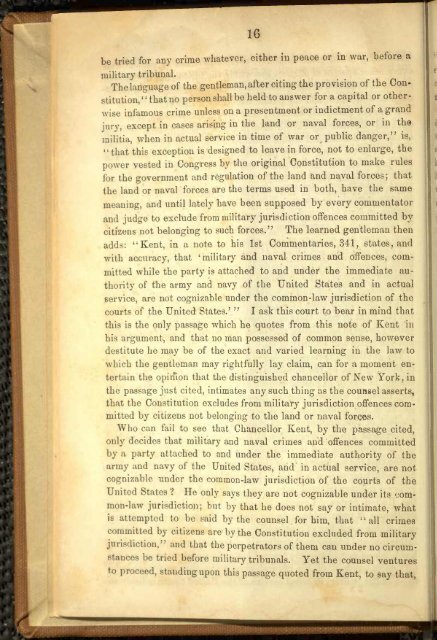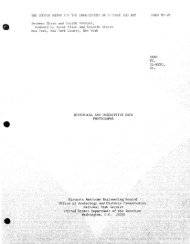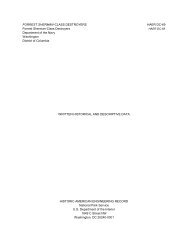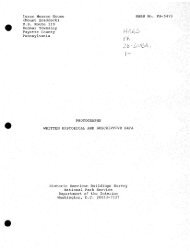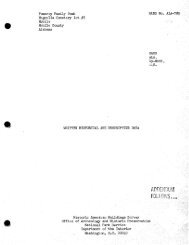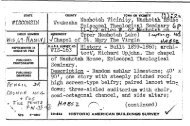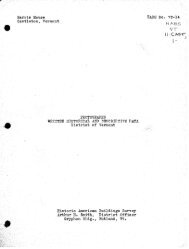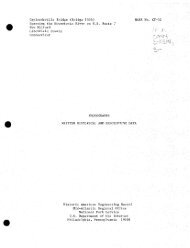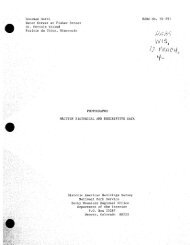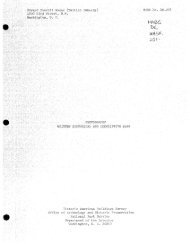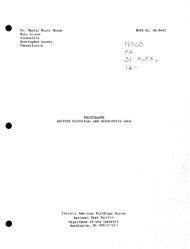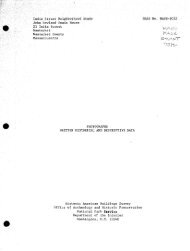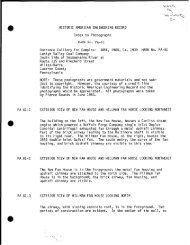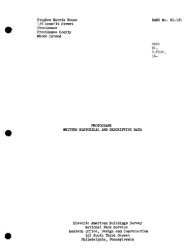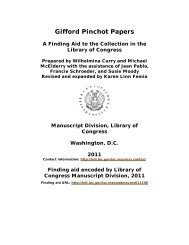Abraham Lincoln - American Memory
Abraham Lincoln - American Memory
Abraham Lincoln - American Memory
Create successful ePaper yourself
Turn your PDF publications into a flip-book with our unique Google optimized e-Paper software.
16<br />
be tried for any crime whatever, either in peace or in war, before a<br />
military tribunal.<br />
The language of the gentleman, after citing the provision of the Con-<br />
stitution," that no person shall be held to answer for a capital or other-<br />
wise infamous crime unless on a presentment or indictment of a grand<br />
jury, except in cases arising in the land or naval forces, or in the<br />
militia, when in actual service in time of war or public danger,'' is,<br />
"that this exception is designed to leave in force, not to enlarge, the<br />
power vested in Congress by the original Constitution to make rules<br />
for the government and regulation of the land and naval forces; that<br />
the land or naval forces are the terms used in both, have the same<br />
meaning, and until lately have been supposed by every commentator<br />
and judge to exclude from military jurisdiction offences committed by<br />
citizens not belonging to such forces." The learned gentleman then<br />
adds: "Kent, in a note to his 1st Commentaries, 341, states, and<br />
with accuracy, that 'military and naval crimes and offences, com-<br />
mitted while the party is attached to and under the immediate au-<br />
thority of the army and navy of the United States and in actual<br />
service, are not cognizable under the common-law jurisdiction of the<br />
courts of the United States.' " I ask this court to bear in mind that<br />
this is the only passage which he quotes from this note of Kent in<br />
his argument, and that no man possessed of common sense, however<br />
destitute he may be of the exact and varied learning in the law to<br />
which the gentleman may rightfully lay claim, can for a moment en-<br />
tertain the opinion that the distinguished chancellor of New York, in<br />
the passage just cited, intimates any such thing as the counsel asserts,<br />
that the Constitution excludes from military jurisdiction offences com-<br />
mitted by citizens not belonging to the land or naval forces.<br />
Who can fail to see that Chancellor Kent, by the passage cited,<br />
only decides that military and naval crimes and offences committed<br />
by a party attached to and under the immediate authority of the<br />
army and navy of the United States, and in actual service, are not<br />
cognizable under the common-law jurisdiction of the courts of the<br />
United States ? He only says they are not cognizable under its


